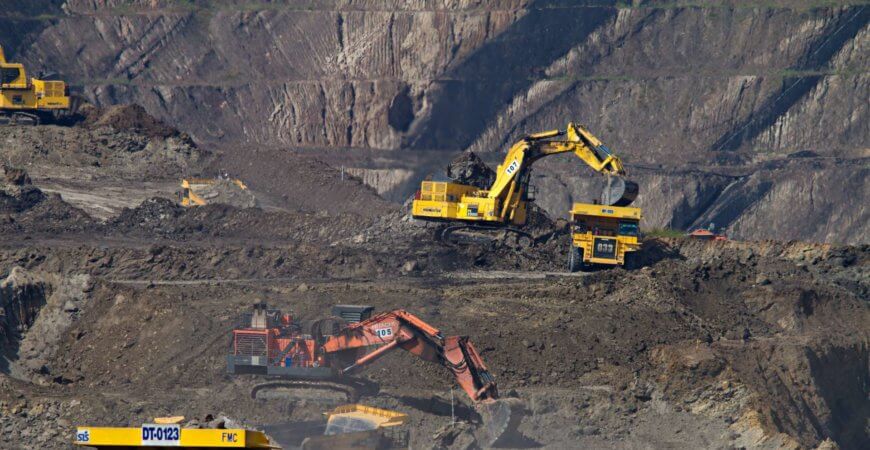

Mining vs Recycling: How the Benefits of Recycling Metals Are Transforming Industry
Metals, both rare and common, form the backbone of our modern societies. They power our energy infrastructure, our electronics, our appliances, and much more. The economics and the logistics of whether mining or recycling is better, more cost-effective, and more reliable have profound implications for businesses at all levels of the supply chain.
In this article, we’ll go over the benefits of recycling metal and how it compares to mining, what the future holds for these two approaches, and how your company can adapt to the changing realities. If you are a business that heavily relies on metals for its daily operations, you can’t afford to remain uninformed on these topics.
What Are the Benefits of Recycling over Mining?
Metal recycling has increasingly taken up a more prominent role in supply chains in multiple industries. Though it depends on the type of metal, for some precious metals, almost 30% of the global supply comes from recycling.
So, how has scrap metal recycling taken off so quickly? What are its benefits over mining? This section has the answers.
#1 Cheaper
Though it might be counterintuitive at first, two significant reasons have contributed to making recycling price competitive, and this has had profound implications for how companies choose to source their products.
Raw materials are limited natural resources. The demand for materials keeps increasing. Rare metals are essential for the manufacturing of electronics, solar panels, and much more, but these resources are very limited and are often isolated to a few geographical locations, which means creating new mines and meeting demand is increasingly costly.
Meanwhile, the exact opposite process is happening with recycling. Recycling infrastructure is improving rapidly in most developed countries. A blossoming recycling industry exists now, and if you want to recycle scrap metal, it is easier than ever before. The economy of scale has kicked in, and recycled materials are now cheaper than ever before.
#2 Less Susceptible to Supply Chain Issues
Most rare metals existing in a few isolated geographical locations bring about with them another problem as well: Supply chains are extremely fragile and lack any meaningful diversification. While COVID laid bare the weaknesses of these supply chains, they’ve been far from the only risk. Recent political developments between China and America have increasingly threatened global trade as well.
Recycling metal doesn’t suffer from the same weaknesses. Most scrap metal is sourced locally, recycled locally, and resold locally, making them surprisingly resilient, even if they are not completely isolated from global markets.
#3 More Environmentally Friendly
Lastly, and perhaps metal recycling’s biggest selling point, it is far more environmentally friendly than mining new resources producing less waste and greenhouse gas emissions, and this is important. Not only do an increasing number of end customers care about the environmental impact of the products they consume, but governments have also adopted policies that reward environmentally friendly companies. This has created a perfect storm by which, for a lot of businesses, using recycled scrap metal becomes more affordable.
Why Will Recycling Only Matter More Going Forward?
Recycling metals isn’t just an important part of the supply chain right now, but as we go forward, its role is only set to increase more. This is a trend you should pay attention to whether you’re running scrap metal recycling facilities, a manufacturing business, or a storefront since it will impact you in one way or another.
#1 Mining Is Getting More Expensive
As competition over precious natural resources increases and as countries like China and Chile move to enact policy that preserves precious natural resources, access to new mines will be harder and costlier than ever before.
With a limited supply of raw metals, the metal recycling process will be more important than ever before in meeting global demand. Thanks to advanced waste facilities recycling materials, the alternative will use less energy, result in less air pollution, and, ultimately, come out cheaper than mining them.
#2 Governments Are Encouraging Recycling
To provide an environmental alternative, to create more robust supply chains, and due to national security considerations, many governments have incentives and programs to recover precious metals and recycle them.
This includes, but is not limited to, incentives for companies to recycle scrap metal, subsidizing the recycling industry, creating infrastructure to distribute recycled metal, and much more. Whether you need ferrous metals or non-ferrous metals, you can take advantage of these programs to reduce costs and improve productivity and resilience.
How Can You Adapt Your Business to This New Reality?
The advances in the metal recycling industry are real and they bring many benefits, and this could potentially transform how businesses operate. This is why you need to take some steps to adapt to the new realities.
- Look into suppliers for recycled metals: if you need raw material for your operations, look into recycled metal suppliers. You’ll be surprised at the amount of options you have. Very few raw materials are unrecyclable, for everything else, you can get pretty good deals on high-quality metals without needing to jump through hoops and rely on complex supply chains.
- Create a recycling process: instead of only relying on metal recycled from elsewhere, you should also engage in metal recycling yourself. These global dynamics and technological advances go both ways. Not only are recycled metals more available than ever before, but demand for scrap metal and other metal waste products is higher than ever before. If your company produces a lot of scrap metal, you can either recycle them into raw resources or turn them into a sizable revenue stream by relying on metal recycling. Many large manufacturing plants have dedicated recycling teams that ensure their waste is compliant with recycling industry standards, and as your company grows bigger, you need to seriously consider metal recycling as an important option.
